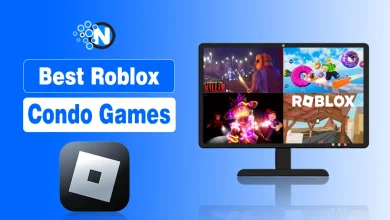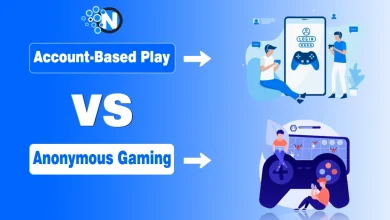What It Takes To Go Pro In League Of Legends

We’ve all had those games where it feels like you’re built for pro play, clean combos, smart roams, and big outplays. But going pro in League takes more than just a good win rate.
Teams look for consistency, awareness, and the right mindset. The good news is that many players have made that jump, and you can too.
In this blog post, I will explain how you can go pro in this exciting game to level up your experience.
Let’s start!
League of Legends (LoL) – An Overview
League of Legends (LoL) is one of the most competitive esports titles in the world, with thousands of aspiring players vying for a chance to go professional. As of January 2nd, 2025, the game has 131 million monthly active players.
But climbing the ranks from solo queue to the grand stage of the LCS, LEC, or other major leagues requires more than just mechanical skill. It demands discipline, strategy, adaptability, and a deep understanding of the game.

How It All Starts: Climbing The Ladder And Getting Noticed
Solo queue rank is the first thing scouts check, especially in regions like NA or EU, so it’s crucial for the start of your professional player career. It shows you’ve got the mechanics and understanding to compete with the best. But being high ranked alone won’t get you offers. If you’re not at least hitting high Grandmaster or Challenger, you’re not on the radar.
You need to stand out and get noticed.
That means entering tournaments, joining amateur leagues, and scrimming with coordinated teams. Each region has its own route to the top.
- In North America, there are Scouting Grounds and the amateur circuit, where orgs and coaches scout new talent.
- In Europe, players usually go through regional leagues — the ERLs like France’s LFL or Germany’s Prime League — which are full of LEC hopefuls.
- In Korea, most rookies get picked up after playing incredibly solo queue or shining in academy teams.
The systems are different, but the goal is the same: prove you’re more than just a ranked warrior.
Once you’re noticed, things move quickly. Once you’re noticed, you might get a shot at an academy or regional team. Early contracts are tough, low pay, high pressure, but they’re your chance to show you can work within a team, follow direction, and grow under pressure.
From there, the stakes get higher. Playing in regional playoffs or international qualifiers becomes part of the job. Perform well in major League of Legends tournaments, and bigger teams will take notice. Levi from GAM Esports is proof, his MSI run put him on the map globally. But even after making it to the big leagues, the work only gets harder.
What A Pro’s Daily Life Actually Looks Like
Let’s say you made it. Congrats. Now the real work starts.
Most pros practice 6 to 10 hours a day: team scrims, solo queue, VOD reviews, meetings, and prep work for the next matchday. It’s structured, intense, and fully scheduled. Top teams now even have dieticians, sports psychologists, and sleep coaches to keep players sharp through the season.
And no, they’re not playing all day for fun. When you’re scrimming for five hours straight against other Tier 1 teams, there’s no midlane Yasuo pick “just for laughs.” Rest days? You might get one a week. And when you’re in season, traveling, competing, doing media promotions, or even streaming for sponsor obligations, burnout is always around the corner.
Even big names feel the pressure. Doublelift stepped away in 2020 because the pressure and burnout had piled up too high. Getting to the top is hard. Staying there? Even harder.
But we are getting ahead of ourselves. Let’s step back and see what is required from you to become a pro LoL player.
The Skills That Actually Matter
You’ve got hands, skillshots hit, 1v2s outplayed, APM looking spicy. That’s a good start, but it’s not enough. At the top, everyone’s mechanically sharp. What really counts? All the traits that don’t show up in your KDA.
- Decision-making. Pros don’t have time to second-guess. Every second matters, especially in high-stakes games.
- Pressure handling. You’re in scrims, maybe a tournament, maybe even on stage with thousands watching. Your team relies on you, and the enemy knows exactly how to punish your misstep. So you have no right to collapse under pressure.
- Teamwork. Real team play means syncing with four other people in real-time, giving clear, calm info while also processing theirs.
- Discipline. That’s the backbone. Watching your own VODs even when you’re tired. Playing the same champ over and over because your team needs it. All this matters if you want to be a pro.
The pros are the ones who can take all of the above and apply it every single day.
Still, before you get there, it’s not a good idea to quit your job and dedicate your whole life to LoL. So here are a few tips for a start.
Practical Tips To Start Your Journey (Without Quitting Your Day Job)
You don’t need to go full-time from the start. Most pros didn’t. The smart move is to treat it like a serious hobby first, one that gets more serious as you improve. That means playing with purpose.
Start by Reviewing Your Games
A few things you want to pay attention to:
- Find what you do wrong, even in wins.
- Figure out when you’re wasting cooldowns, missing CS, or messing up vision.
- Master a few champions instead of trying to be good at everything.
- Learn wave management, jungle tracking, and warding — the little things that win or lose games, especially at higher levels.
Playing ranked is fine, but it’s not the only thing that matters.
Compete in Amateur Leagues
Amateur leagues help you get skills in the game and in competitive play, so you’d better:
- Get into tournaments, like Challengermode Nordic Clash or the Iberian Amateur Cup.
- Try amateur leagues on platforms like Challengermode or Faceit.
- If you’re in school or college, join a team there.
It’s one thing to pop off in solo queue — and another to perform when you’re shotcalling with four teammates counting on you.
Watch Pro Games To Learn
The best way to learn from pros is to analyze their play, so:
- Pay attention to how laners time their recalls, how supports track enemy vision, and how teams play around objectives.
- Pause the VOD, think through the play, and see what you’d do in the same spot.
- Watch full games — the setup before fights often matters more than the fight itself.
That kind of active watching helps way more than you’d think.
Build a Name
Scouts do check social media. If you’re hitting high rank, showing up in tournaments, and posting clips or thoughts on Twitch, YouTube, or (x) Twitter, you’re already easier to notice. People need to know you exist before they can offer you a shot.
At the End – Take a Reality Check
Before you jump all in, ask yourself if going pro is really for you. Now that you’ve seen what it takes, the grind, the pressure, the mindset, it’s clear this path isn’t for everyone.
If you’re young, high-ranked, can take criticism, and stay focused, then you might have a shot. But if not, that’s fine too. Coaching, content, casting, or analysis are all good paths for people who know and love the game. Just be honest about what you want from it.




